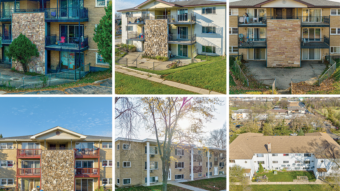By Kristian K. Lee, Commercial Alliance Chair, Mainstreet Organization of REALTORS
Consumer protection laws, such as those that cover accurate appraisals and truth in lending, are common in residential real estate. But when it comes to buying or leasing commercial property, those regulations rarely apply. Commercial real estate operates with a policy of caveat emptor (let the buyer beware). That’s why it is essential that buyers and lessees take time to examine, inspect and assess all aspects of their properties before taking ownership.
This feasibility study period is one of the final parts of a commercial transaction and is arguably the most important. But “due diligence,” as it is commonly known, is something that causes even seasoned veterans confusion.
If you are new to the process, commercial real estate transactions can seem overwhelmingly complex. But in my role as vice president of Suburban Real Estate Services, Inc., and chair of the Mainstreet Organization of REALTORS Commercial Alliance, I help educate my clients about due diligence nearly every day.
In my experience, the reason many people don’t understand or perform a thorough due diligence investigation is that they think of it as an afterthought rather than an integral step in the process. After all, you have already endured a long search to find the right property at the right location for your business. You’ve crunched the numbers and secured financing. And you’ve made an offer, signed a purchase agreement and put a good faith deposit into escrow. It seems like it should be time to pop the champagne. But there is still very important work to do.
Performing a thorough due diligence investigation helps ensure you are making a sound investment, and it should be part of any transaction, whether you are purchasing or leasing a property, though the depth and details of the evaluation can vary greatly.
Due Diligence for Lessees
Say you are a small business owner. With help from your commercial REALTOR, you have found a property well-suited to your clients and employees. It is easily accessible from the parking lot, expressways and other infrastructure important to your business. But it’s not time to sign on the dotted line just yet. No matter what you are leasing—whether an office, retail store or industrial warehouse—you should do basic due diligence that consists of a thorough review of these features:
• Safety: Your building and your suite should be current on the latest municipal life safety standards, such as strobes, pull stations, ADA compliant washrooms, exit signs and other required equipment. You should also confirm who will be responsible for any additional costs that may be incurred to install these features: you or your landlord.
• Zoning: Verify with the municipality that your intended commercial use is permitted at the property. If necessary, determine the timeline of construction permits, occupancy permits and any other permits required by the municipality.
• Structure: Check out the roofs and hire a contractor to inspect the HVAC system. Again, it’s important to clarify with the owner who will be maintaining these systems.
Commercial REALTORS can perform nearly all of the inspections required in the due diligence process for lessees. For those they cannot, such as HVAC inspections, they can recommend trusted contractors.
Due Diligence for Buyers
In the real estate market, there are two kinds of buyers: owner-users, who operate their businesses out of their properties, and investors, who purchase large spaces to lease out. In both cases, the buyers need to make sure the properties meet their needs, whether to run their businesses and contribute to their livelihoods or to turn a profit on the rental market. But how these two buyers approach due diligence will be quite similar.
Many aspects of due diligence that apply to leased properties are relevant here. The main difference is that during a purchase the buyer is provided 60 to 90 days (the length of time is determined during sales negotiations) to do a very in-depth inspection of the property.
Your Commercial REALTOR will assemble a team of qualified professionals to inspect the property and perform due diligence in the following areas:
• Finances: If you are purchasing a multi-tenant building, for example, you’ll want to look at all the current leases, talk to all the occupants and thoroughly examine the books. Your REALTOR® will spell out in the intent to purchase letter everything you will need to review, including all lease amendments and information on security deposits.
• Environment: Working with a specialist, you’ll confirm the property is not contaminated. This is important for a number of reasons including health and safety. Environmental due diligence also protects you from liability.
• Zoning: Review with the municipality any permits you will need for upgrades or construction you want to do once the purchase is completed.
Make sure, as well, to have professionals inspect the HVAC, mechanical and electrical systems, as well as the roof, foundation and structure.
Bottom Line
Buying or leasing commercial real estate can seem challenging, especially if you are new to the process. But an experienced commercial REALTOR can be your best asset. We have the experience, contacts and knowledge to help you with every transaction, from a small office lease to a large industrial purchase. We’re here to demystify the process, advocate on your behalf and get you the best deal possible. We’ll even supply the champagne.
Kristian K. Lee is Vice President of Suburban Real Estate Services and Chair of the Mainstreet Organization of REALTORS Commercial Alliance.



